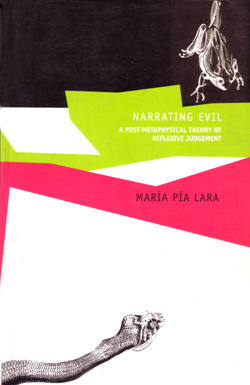Narrating Evil
A Post-Metaphysical Theory of Reflective Judgment
María Pía Lara
6 x 9 inches, 244pp. 2008
ISBN : 9788170463290
Rs 525.00 (PB)
$0.00 (PB)
£0.00 (PB)
Drawing on Immanuel Kant’s and Hannah Arendt’s ideas about reflective judgment, María Pía Lara focuses on how specific narratives shape notions of morality. She considers Greek tragedies, Shakespeare’s different conceptions of evil, Joseph Conrad’s use of literary metaphor, and movies that depict human cruelty. Lara suggests that moral learning is a process involving social institutions, the willingness of individuals and societies to engage in open debate, and the public fashioning of collective judgments. Lara emphasizes a reflexive relationship between an event, the narrative of the event, and the public reception of narrative. Narratives provide important methods for understanding the phenomenon of evil—they introduce new forms of evil and disclose truths about events, such as the Holocaust, that cannot be captured by other conceptual categories. Lara turns to such philosophers and writers as Jürgen Habermas, Walter Benjamin, Primo Levi, Giorgio Agamben, and Ariel Dorfman to prove that the narratives of perpetrators and suffered are always intertwined. Lara is a renowned feminist and political philosopher, and her books is a groundbreaking contribution to contemporary debates about the problem of evil.
María Pía Lara
Political Philosophy
Culture Studies

 Buy (PB)
Buy (PB)